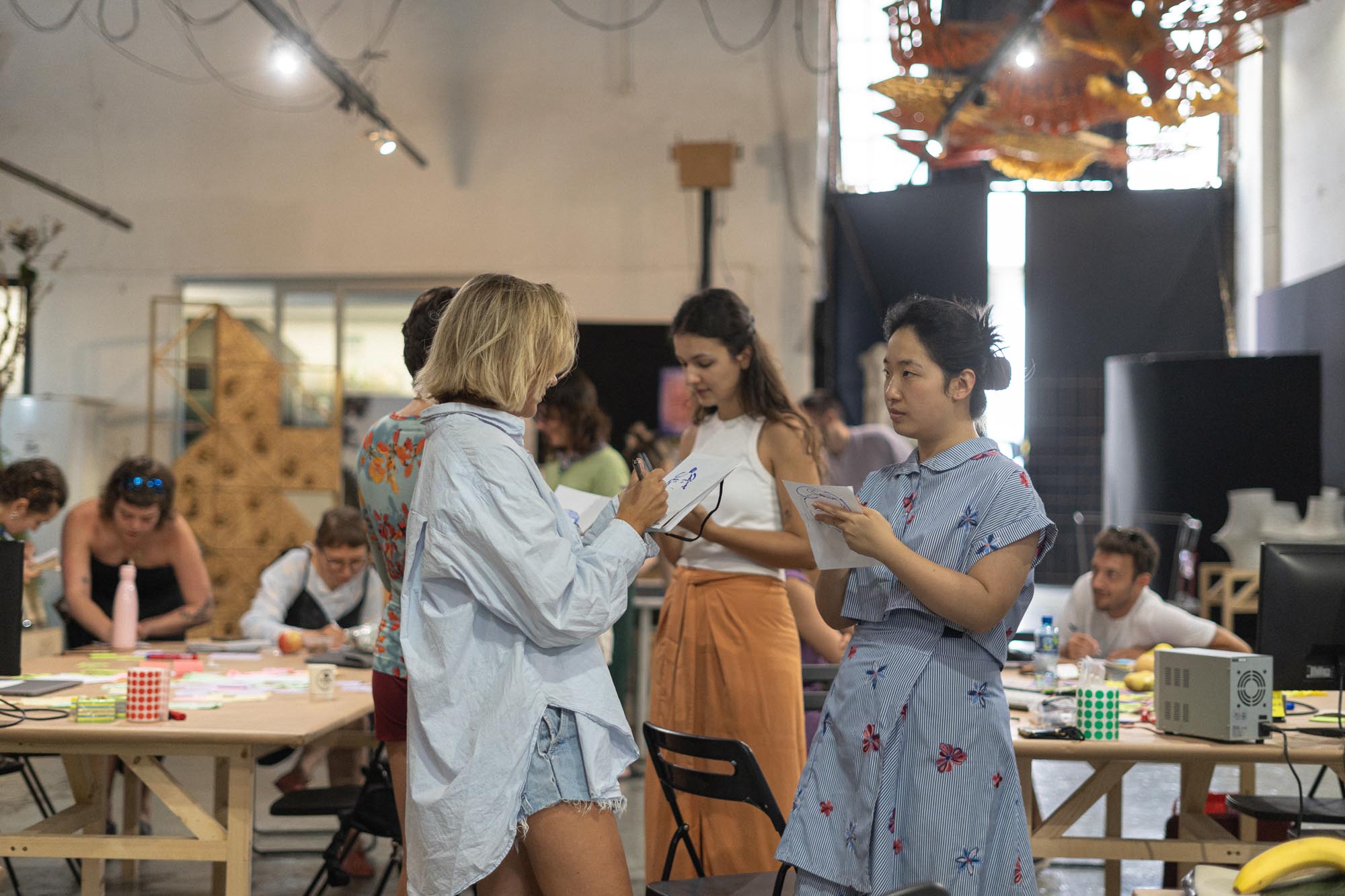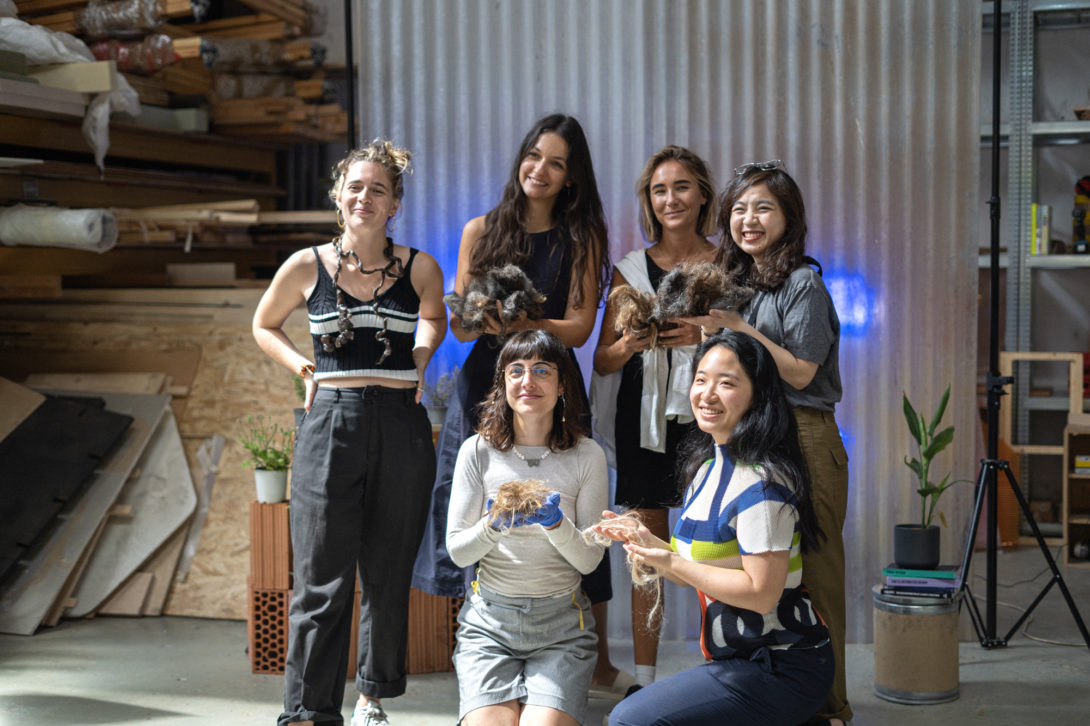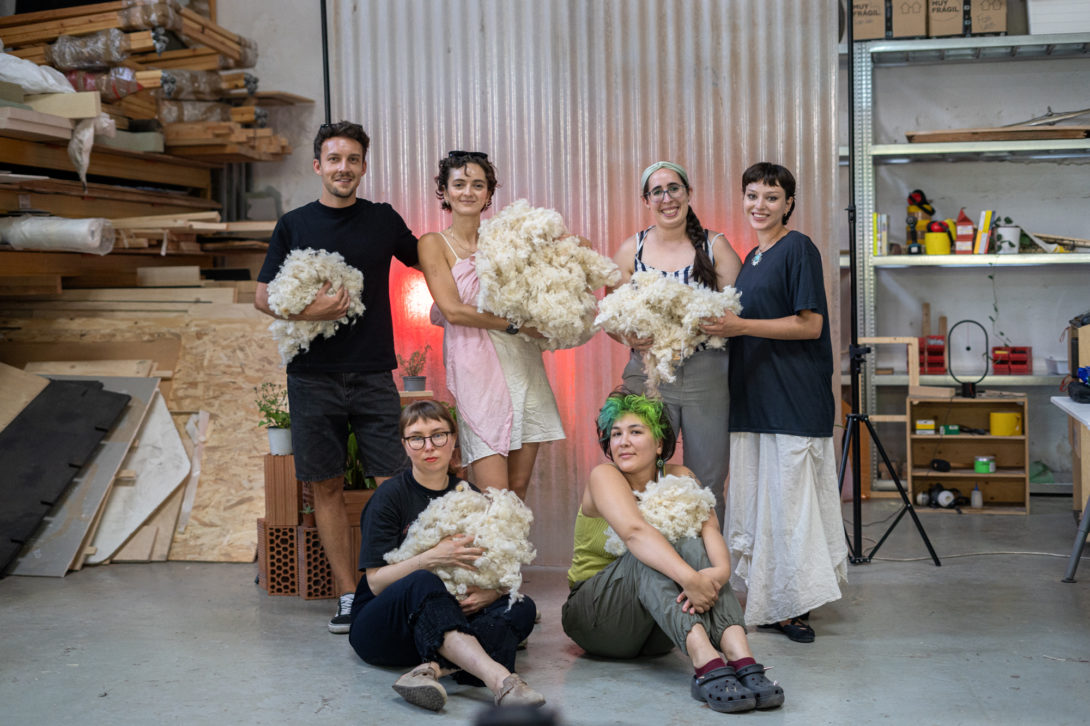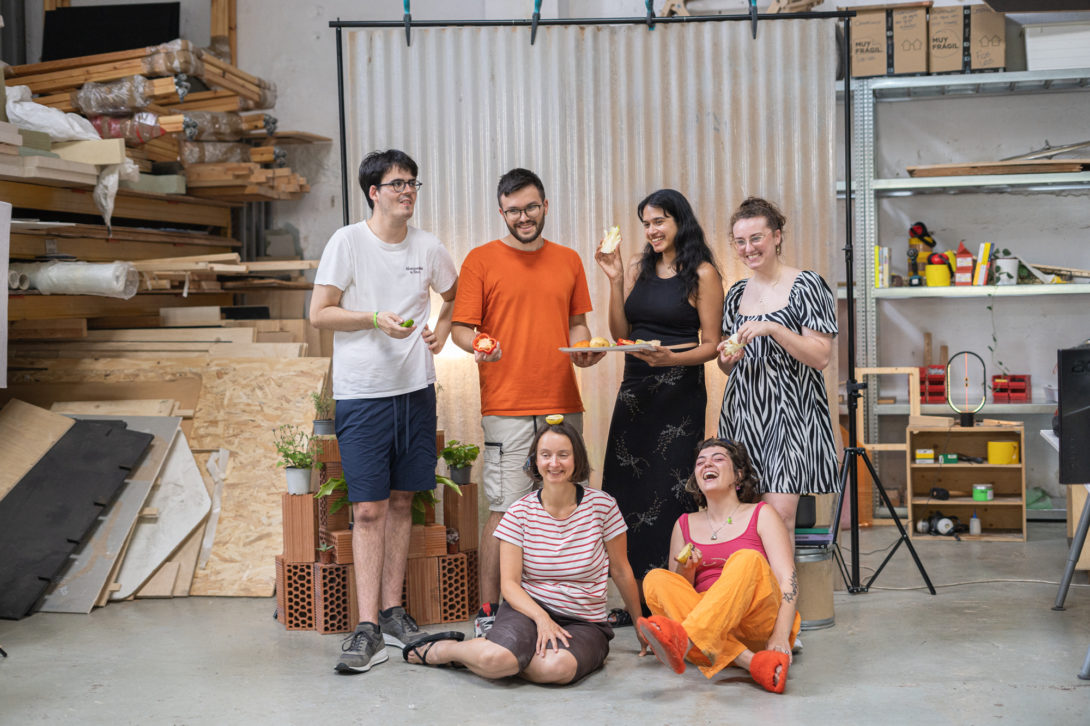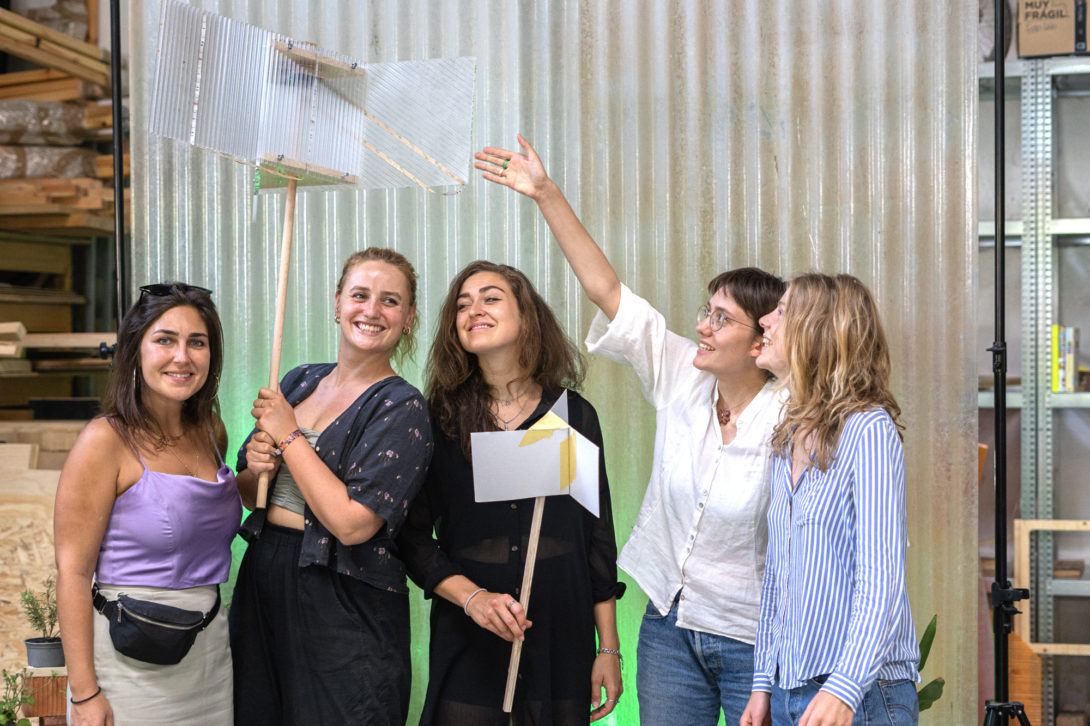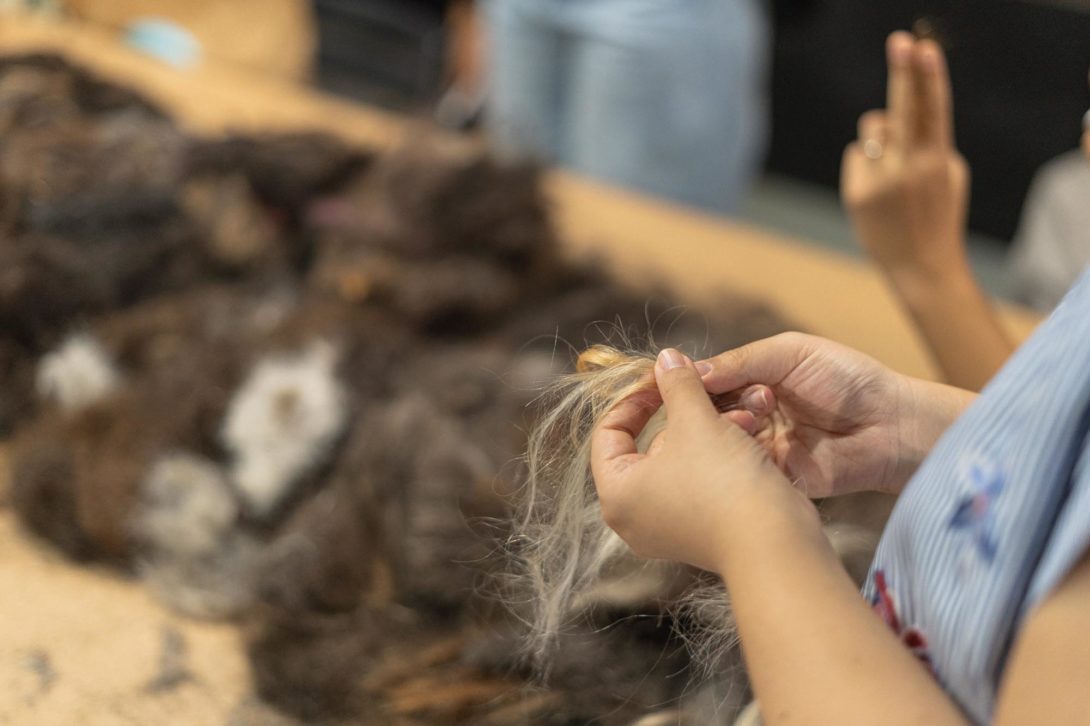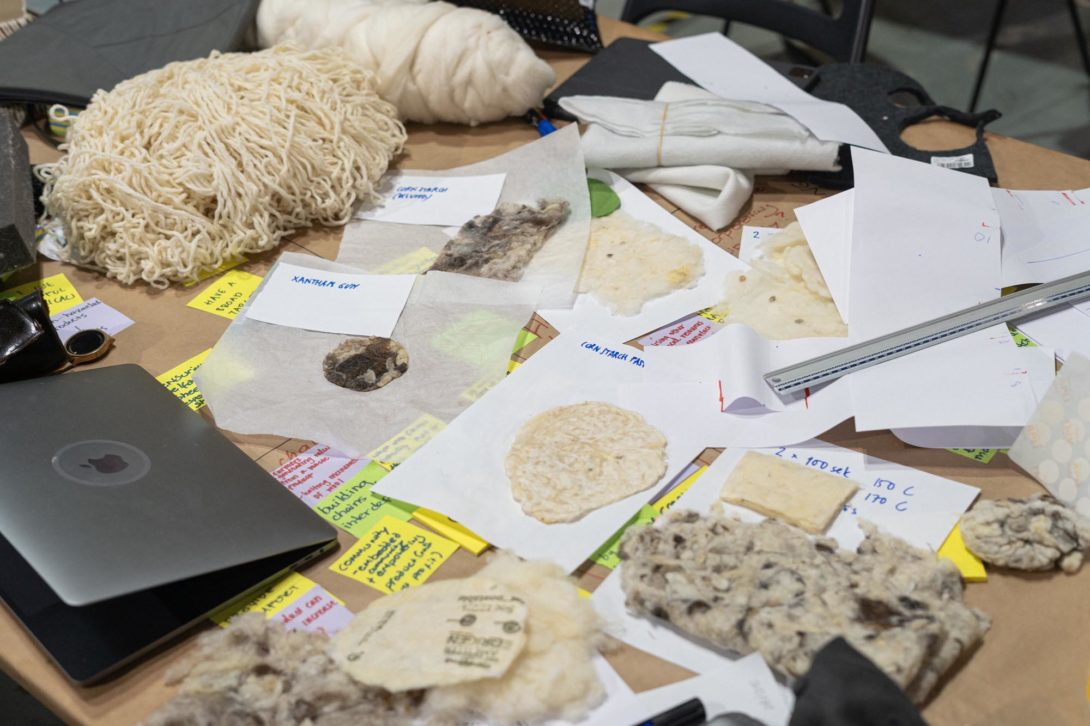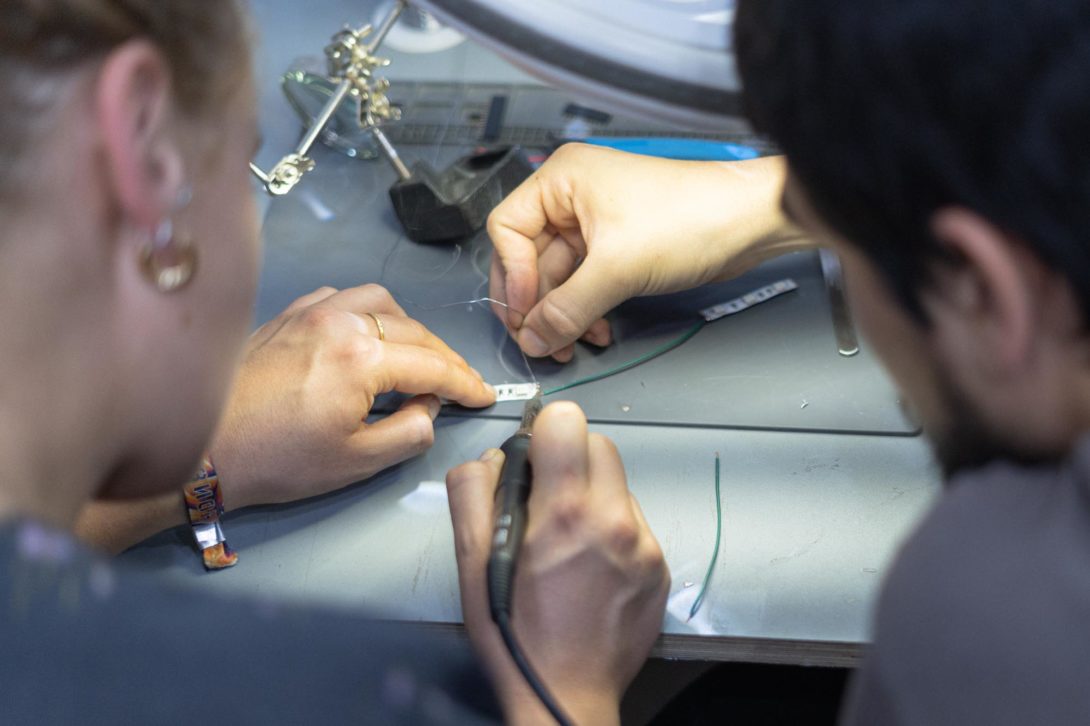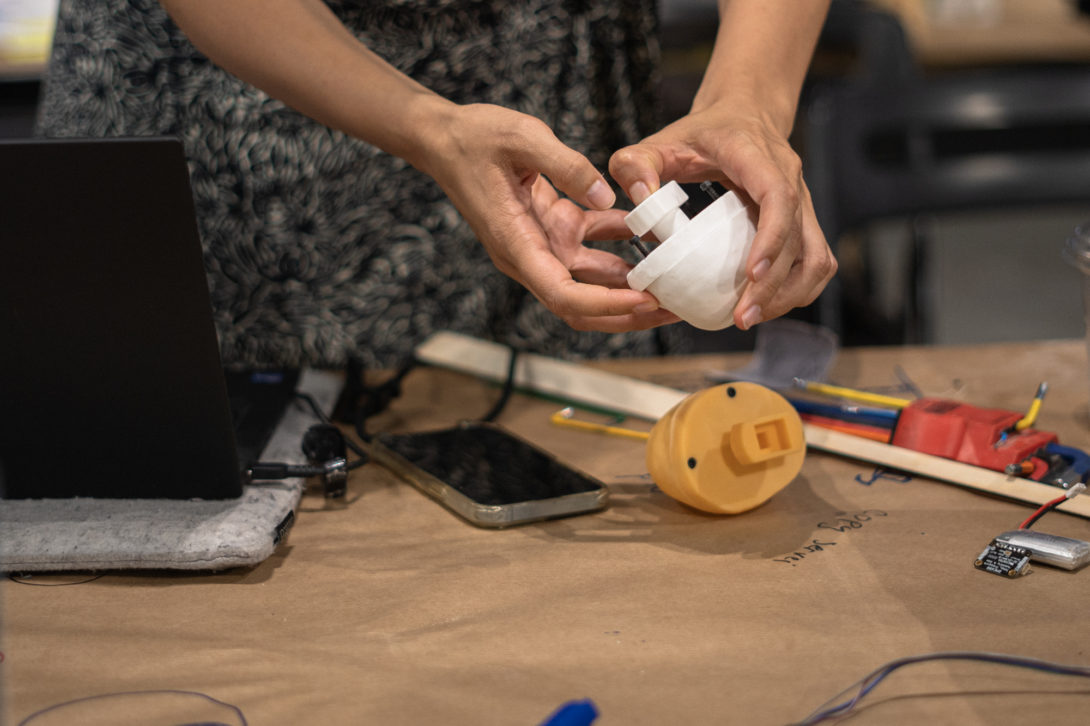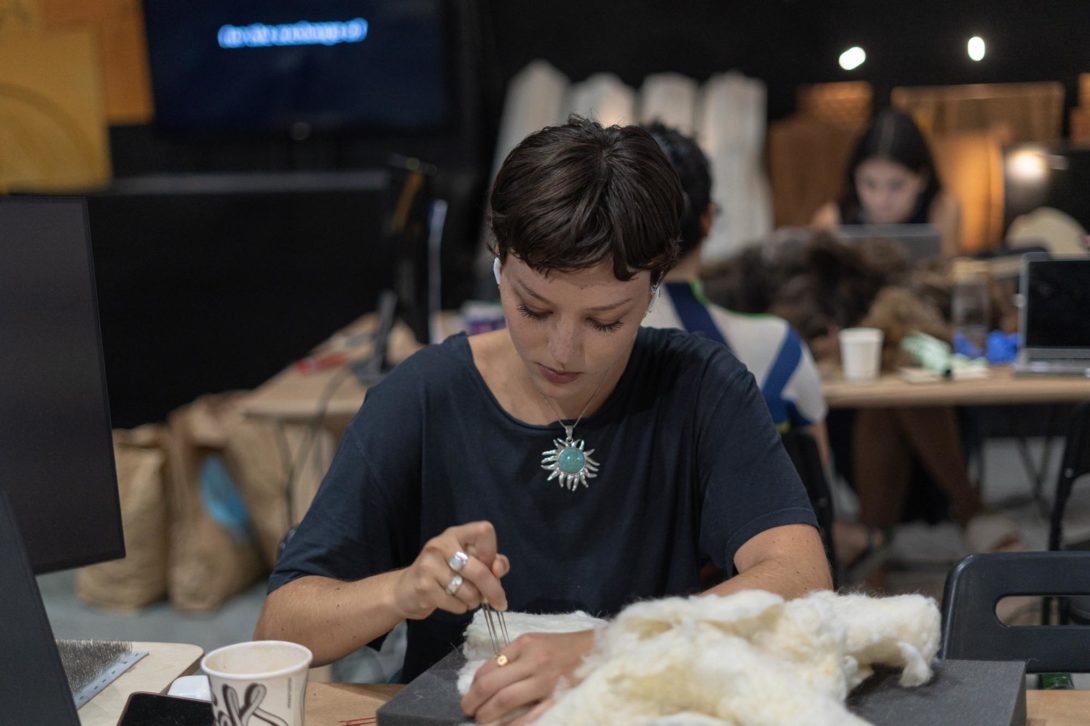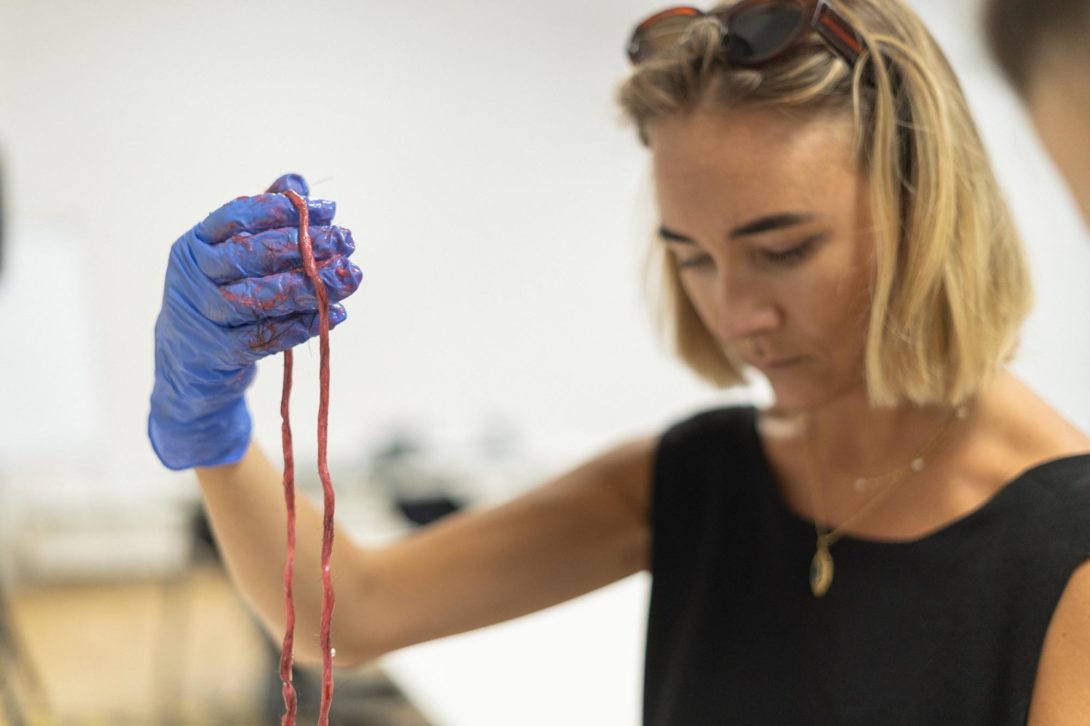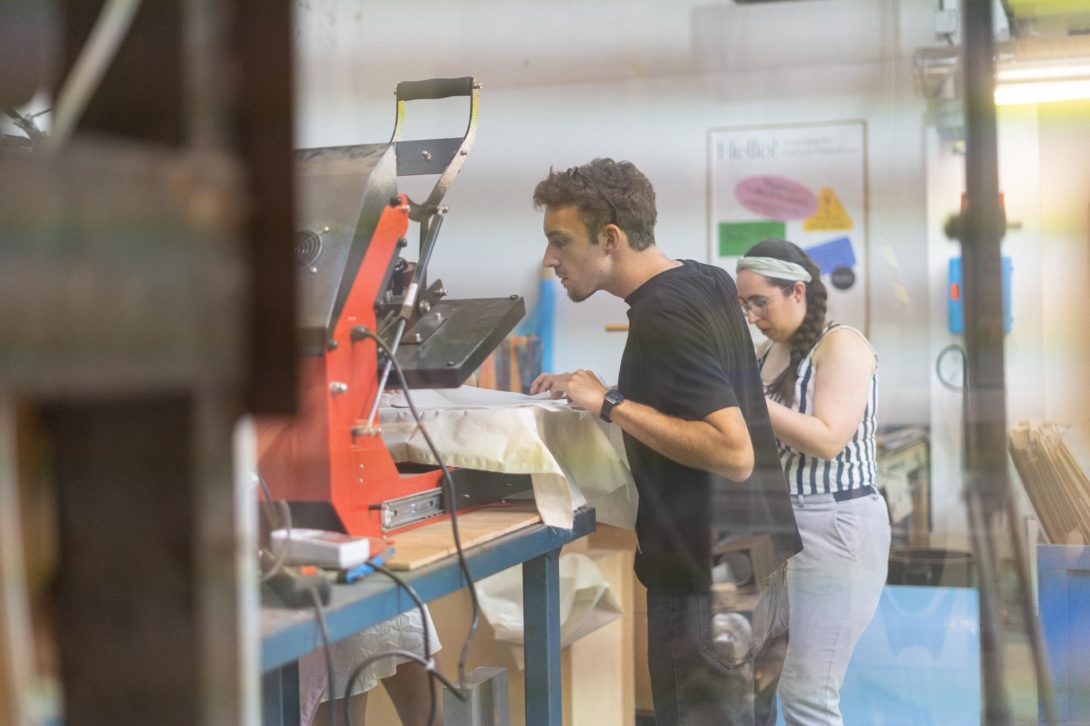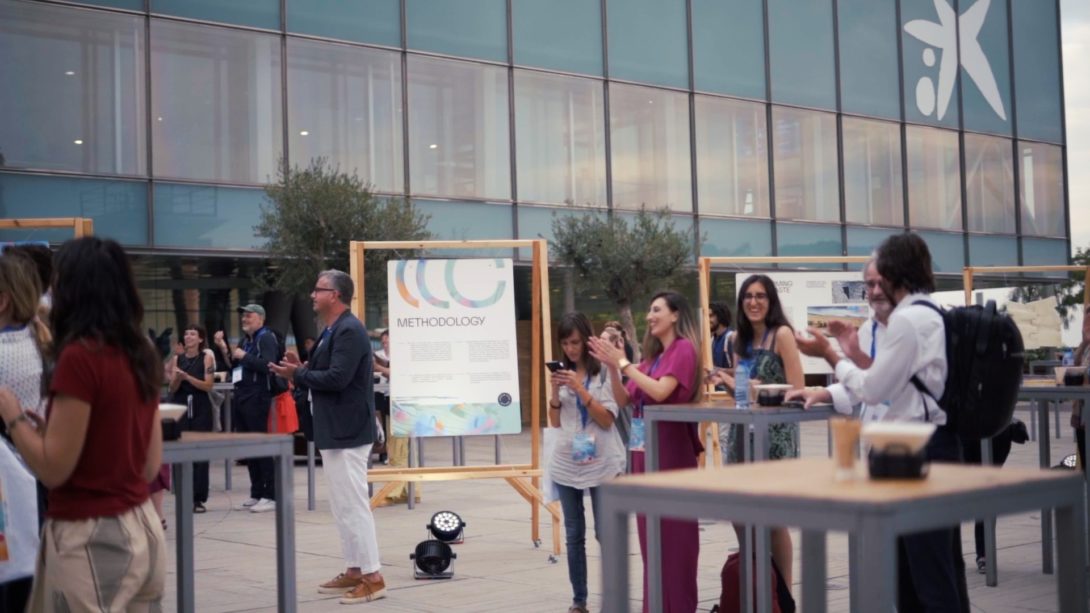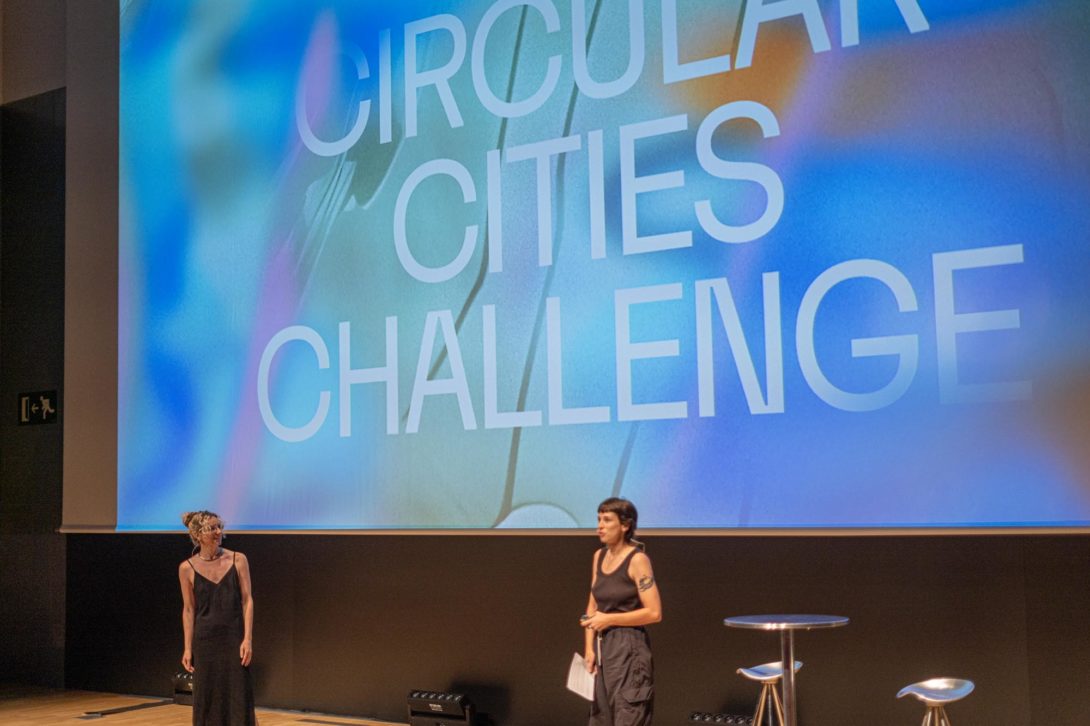Blog
The Circular Cities Challenge was a five-day (July 3-July 7 2023), 40+ hour programme that supported 23 young, local, and international Creative Talents to ideate and prototype circular design strategies to waste material transformation challenges in four design contexts provided by key stakeholders in the city of Barcelona. In this post, we frame the challenge, describe the approaches, and summarise the exciting outputs of our second, week-long design challenge (following our 2019 Plastic for Good Challenge)!
Getting to know the Circular Cities Challenge
Context
We are in the shift from a linear, product-in trash-out paradigm to a more circular and distributed societal and economic model. Cities in particular are grappling with the challenge of shifting to more regenerative and collaborative solutions to meet citizens’ needs.
Barcelona, a hub of innovation, design, and knowledge, is gradually embracing regenerative and circular practices. The city boasts a diverse range of circular economy initiatives and organisations that are tackling the transition to a circular economy through reusing, repairing, refurbishing, and recycling. From upcycling textiles into new designs and food waste into compost to repairing and upcycling workshops, initiatives are re-defining traditional waste materials as high value products. Barcelona’s contributions exemplify a shift towards a regenerative and distributive economy, promoting long-term prosperity for all.
In the Circular Cities Challenge we focused on four challenges that are being addressed both globally and locally here in Barcelona.
Challenge
Four interdisciplinary teams addressed four material flow challenges in: food (with Mercabarna), energy (with Universitat Politècnica de Catalunya-EIT InnoEnergy Masters in Energy for Smart Cities), textiles (with Reimagine Textile and RMT S.A.), and natural waste (with Materfad and Clic Recycle). Teams focused on these four industries due to both local cultural significance and global efforts to implement circularity.
Approach
- Bring awareness to Barcelona’s local context and the potential to adapt global knowledge to develop local solutions
- Boost Creative Talents’ skills and knowledge to help them reach new and emerging markets presented by the Circular Economy
- Promote the role of designers and Distributed Design in the implementation of the Circular Economy in urban contexts
- Integrate the Distributed Design Platform values (open, collaborative, regenerative, and ecosystemic) into every step of the design process
- Make the Circular Economy tangible in the urban context through physical products, interventions, and artefacts designed with and for citizens
- Showcase the diversity of creative and productive hubs currently being developed in Barcelona
Goal
The week-long programme supported young creatives to ideate and prototype circular design strategies for waste material transformation in Barcelona. Each team had to produce a physical artefact in response to the design challenge provided by local context institutions, as well as a 1-minute video presenting their process and final prototype.
Outcomes & Outputs of the Challenge
23 incredible Creative Talents from around the world took part in the Circular Cities Challenge. Makerspaces are often dominated by men– women make up only 19% of people in makerspaces and cite avoiding makerspaces because of their tendency to be dominated by men– but this year, 20 of our challenge participants were women and non-binary individuals. Our participants had a range of backgrounds as well, including landscape architects, climate adaptation consultants, digital artists, textile researcher and educators, and distributed designers, creating a melting pot of ideas and approaches.
Over the course of the five-day programme: the teams toured the institutions that had created their challenges; went through ideation and prototyping methodologies; met with experts in the field to support their process; prototyped between Fab Lab Barcelona and the neighboring TransfoLAB BCN; and ended the week presenting their work to the context provider institutions, the Fab Lab Barcelona team, and each other.
Meet the teams and their prototypes
Now that you know more about the Challenge itself, it’s time to dive into the teams and their prototypes!
Material: Food
Challenge by Mercabarna: Extending the lifespan of the fruit and vegetables on display at market stalls
Team solution: SPY, a sensor-based measurement device informing users of food decay, enabling them to adapt storage conditions to reduce food waste
See Spy’s video here.
Material: Human hair
Challenge by Materfad and Clic Recycle: Combatting cultural taboos through creative and open applications of a renewable and abundant but unjustly ignored resource
Team solution: COOKING HAIR, a biomaterials experimentation project, working with weaving and 3D printing, aiming to inspire others to pursue the possibilities of this natural material
See COOKING HAIR’s video here.
Material: Energy
Challenge by UPC-EIT InnoEnergy Masters in Energy for Smart Cities : Matching energy generation with consumption in the context of communities inside the city
Team solution: UP2US ENERGY, a neighborhood installation demonstrating community energy use to encourage behavior change around consumption
See UP2US’s video here.
Material: Textiles
Challenge by Reimagine Textile and RMT S.A.: Reimagining the value of Spanish wool waste into new, high value composite materials
Team solution: MODUWOOL, an open source modular insulation panel you can make yourself using wool waste and biodegradable bags
See MODUWOOL’s video here.
Beyond the Circular Cities Challenge
The Circular Cities Challenge was also invited to exhibit at the Cultural and Creative Industries Event, hosted by the Spanish Presidency of the Council of the European Union. On July 12th, industry representatives and creatives from around Europe gathered at Barcelona science museum, CosmoCaixa, for a social evening featuring the Circular Cities Challenge teams and their prototypes. The next day, the event organizers hosted a public voting, which awarded ModuWool as the winning team. Lastly, the organisers of the event, the Spanish Foundation for Science and Technology (FECYT) plan to feature the Circular Cities Challenge and its outcomes in an online book.
The Circular Cities Challenge will also be featured in an upcoming documentary, which will be released in October.
Looking for more opportunities with the Distributed Design Platform? Are you seeking guidance on project development, design strategies, or navigating the creative industry landscape? Join our Distributed Design Mentor Scheme Programme!
Gain one-on-one mentorship from international experts, build meaningful connections, and reach your full creative potential in a collaborative and supportive environment.
Apply now with a one-minute video showcasing your relevant experience and motivation. Open call submissions run from Mid-June to October 2023, and early applications are encouraged. Apply here!
